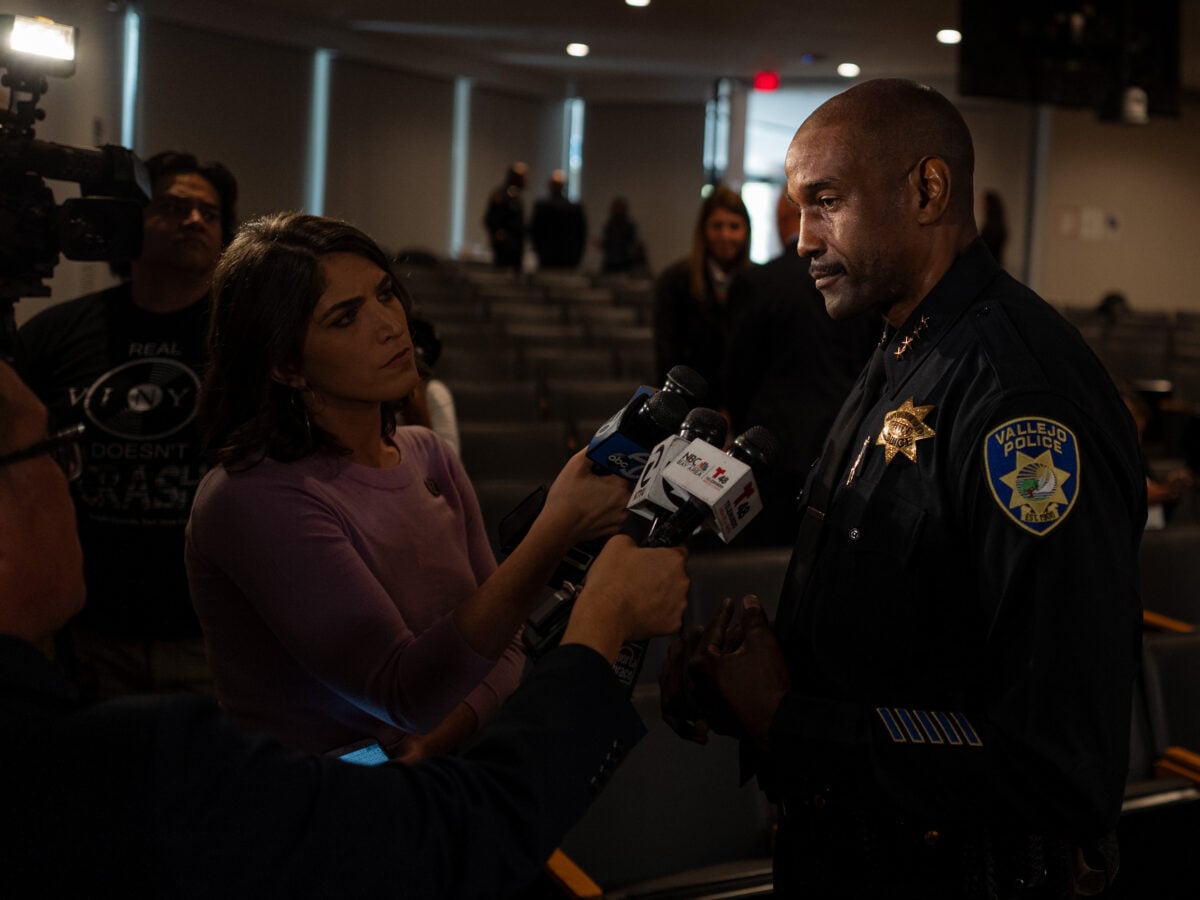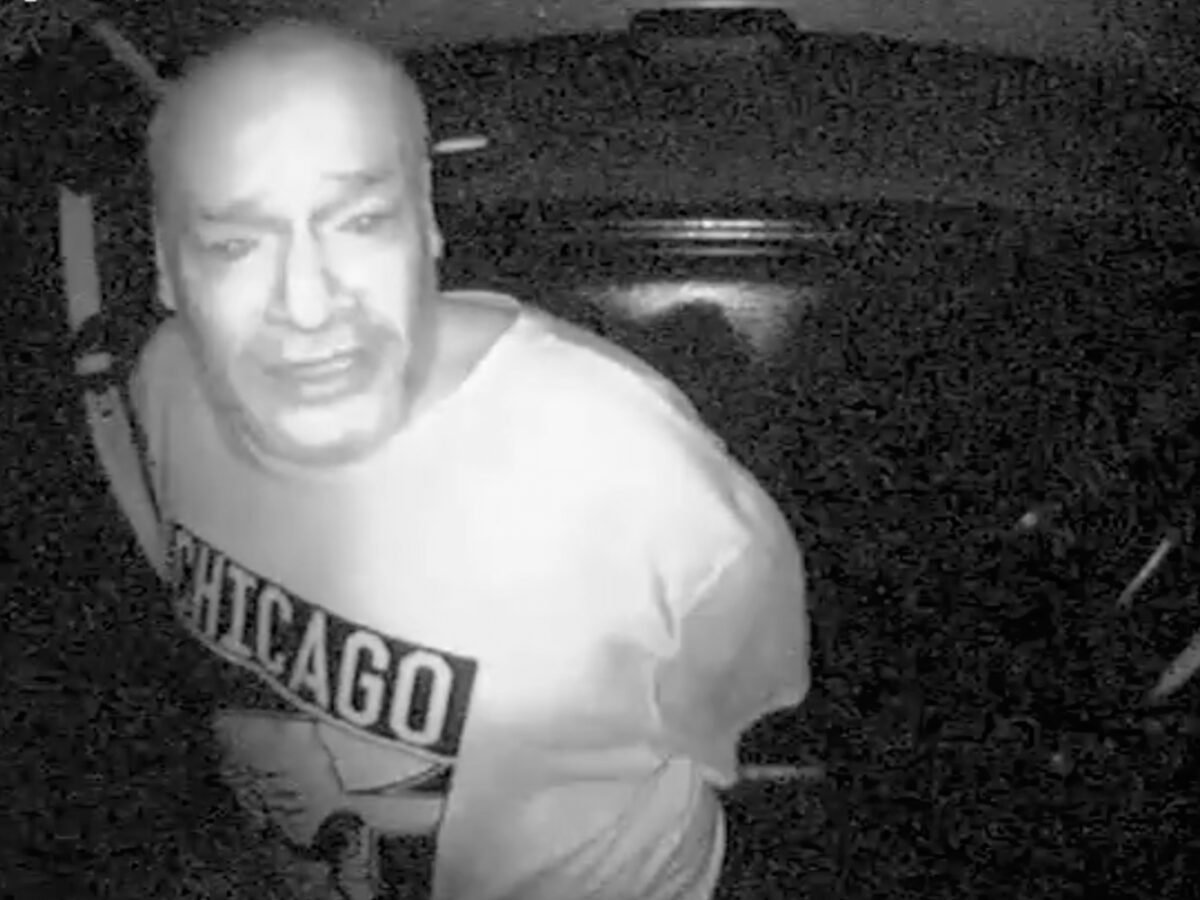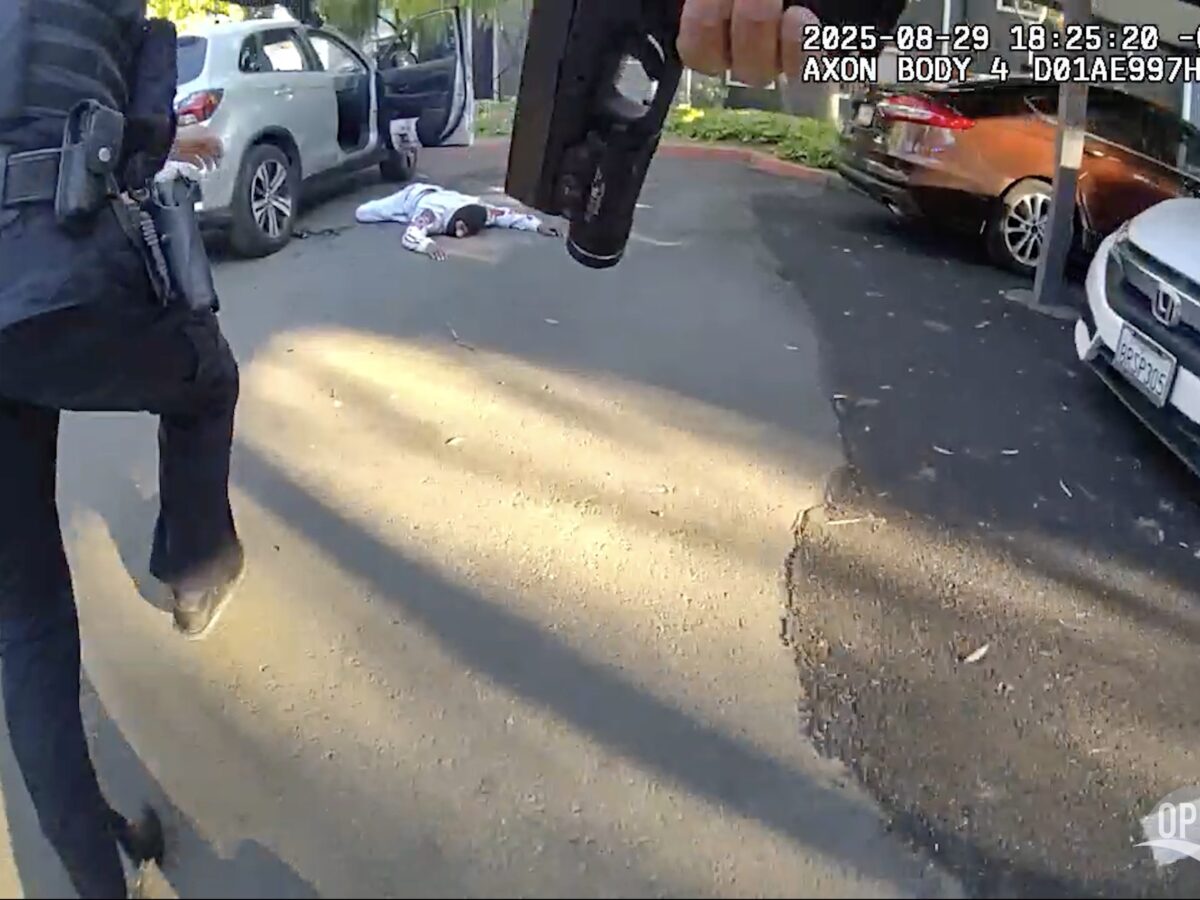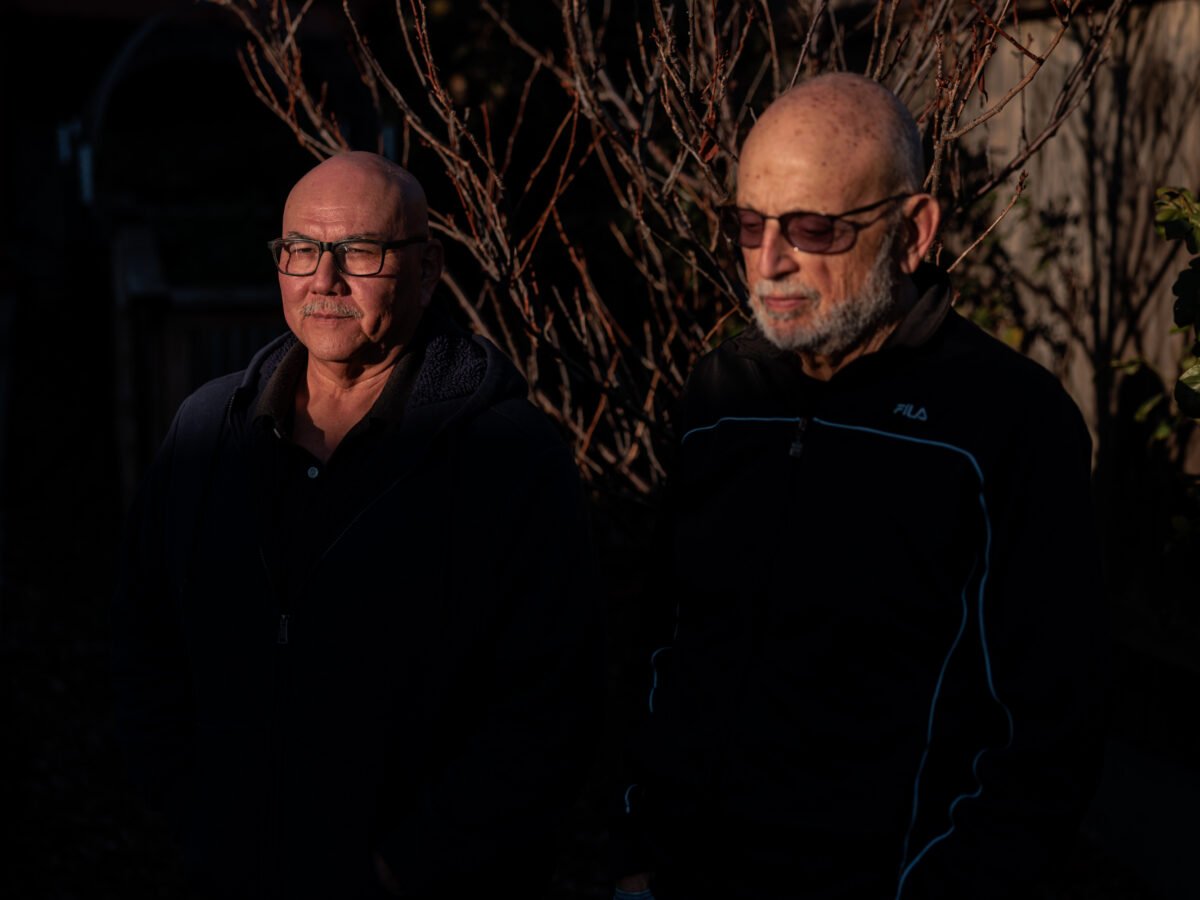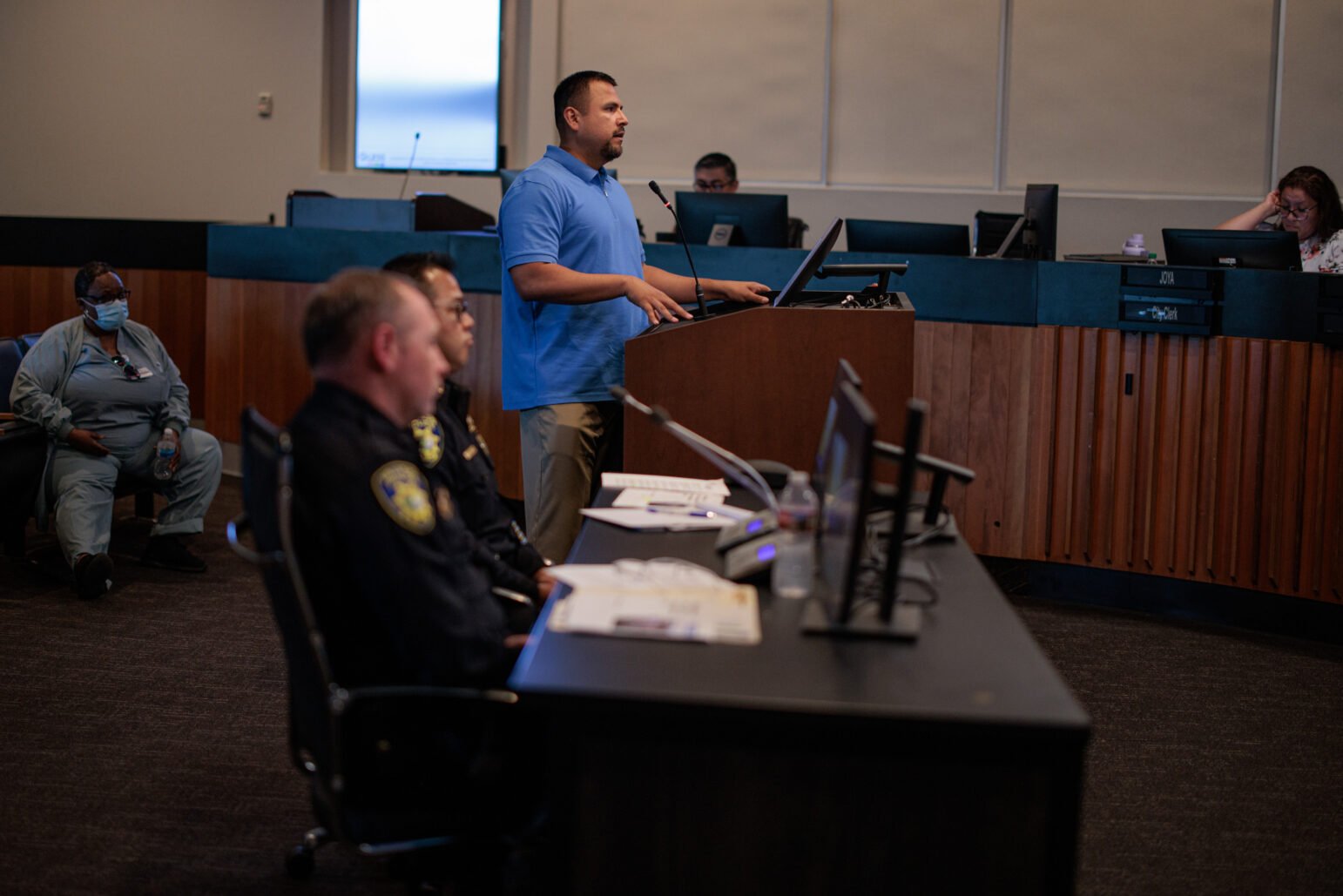
A Vallejo police oversight official who made online comments about an ongoing police shooting investigation has resigned, according to public records.
Phillip Balbuena, who served as a member of the Vallejo Police Department’s Critical Incident Review Board, stepped down on Sept. 30, one day after Open Vallejo reported on his online commentary and that of another oversight commissioner — conduct experts said threatened the integrity of the oversight process.
“As I’ve now become a distraction, I am putting this notice as my resignation from CIRB,” Balbuena wrote in his resignation letter, adding, “I have no regrets on my comments.”
Balbuena addressed his letter to Vallejo Police Chief Jason Ta, City Manager Andrew Murray, Deputy Police Chief Robert Knight, and Councilmembers Charles Palmares and Helen-Marie Gordon, none of whom responded to a request for comment.
In an email to Murray and Ta two weeks earlier, Vallejo Mayor Andrea Sorce expressed concern about Balbuena’s commentary and called for his removal from the oversight body to “ensure that it doesn’t compromise any investigation or open up the city to liability.” Sorce, who did not respond to a request for comment for this article, told Open Vallejo in a statement on Sept. 26 that her email went unanswered.
In his resignation letter, Balbuena accused Sorce of not supporting the “safety and welfare” of Vallejo officers, and called her concerns “misguided.”
“I could not imagine the discouragement one feels when not supported by leadership,” Balbuena wrote. “One must be thankful that direct oversight is led by city management and Command Staff.”
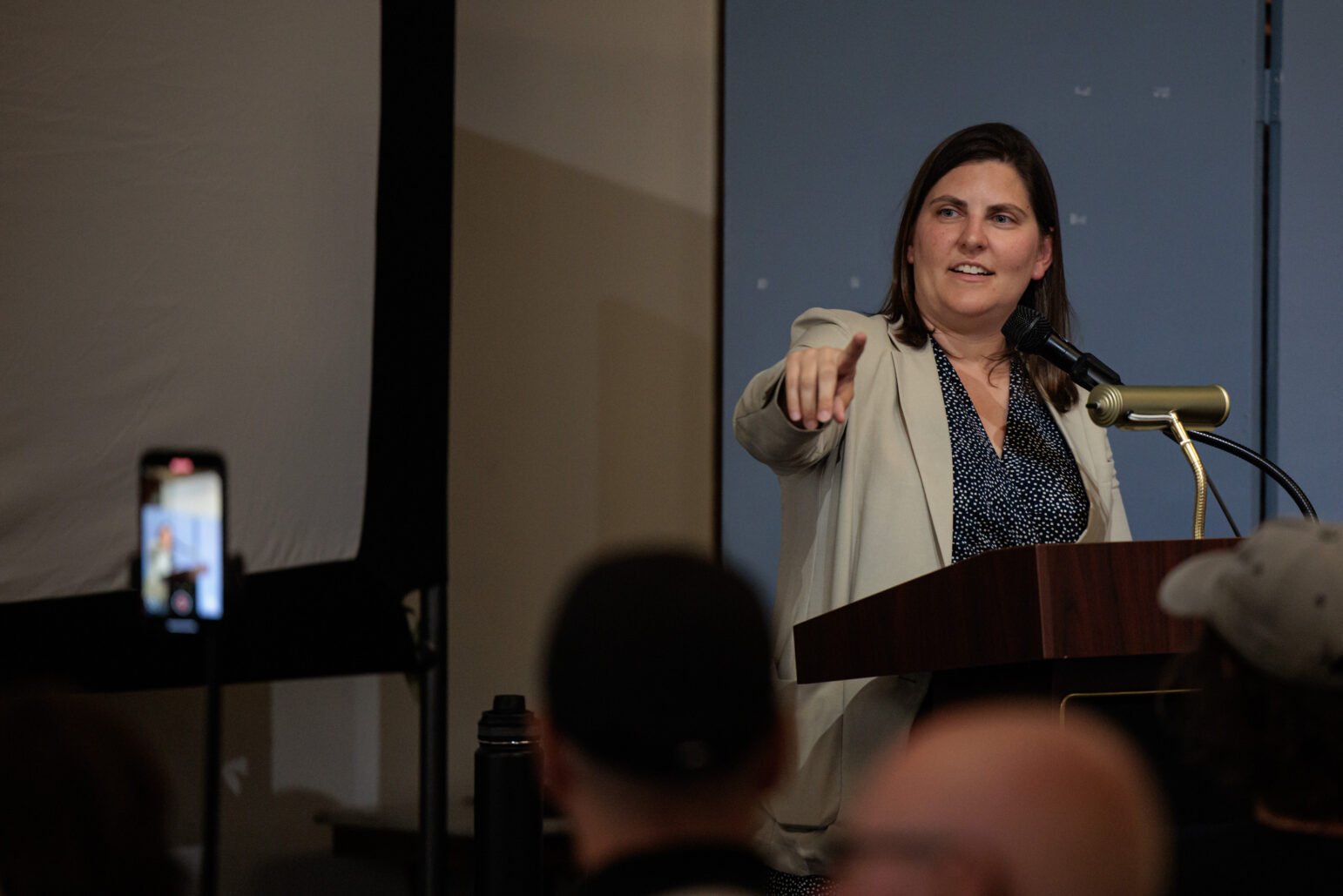
Balbuena also lauded police leadership for a level of transparency “that has not been seen, perhaps ever, in the history of Vallejo’s Police Department.”
Balbuena appeared to be referencing a Sept. 11 community town hall at which police screened approximately three minutes of previously undisclosed body-worn and dashcam footage of the Aug. 29 police shooting of Alexander Schumann. The California Department of Justice makes such town halls mandatory, one of dozens of reforms the state agency has sought to impose on Vallejo police since launching an investigation in 2020 into the “number and nature” of shootings by officers. The Vallejo Police Department has yet to release the majority of audiovisual records relating to the Schumann shooting, as required by state law.
Reached by phone on Oct. 9, Balbuena said he has no regrets about his online comments about the ongoing shooting investigation. He said that city and command staff reviewed his comments and found no wrongdoing, adding that in his view, the CIRB needs clearer policies about what members are allowed to discuss.
Vallejo police policy restricts the sharing of confidential information, but does not explicitly restrict civilian CIRB members from discussing incidents they have or plan to review.
Richard Hybels, a member of Vallejo’s separate Police Oversight and Accountability Commission, made online comments about the Aug. 29 shooting as well. Hybels, who did not respond to multiple requests for comment, remains a member of that oversight body.
Balbuena told Open Vallejo that he joined the CIRB three years ago, after responding to an advertisement from the city. Following a lengthy interview process, police selected Balbuena, along with several other individuals, to serve as community appointees. Balbuena said the department selects at least one civilian to review each critical incident, alongside law enforcement personnel.
Balbuena said he expects another community member will take over his role in reviewing the Schumann shooting.
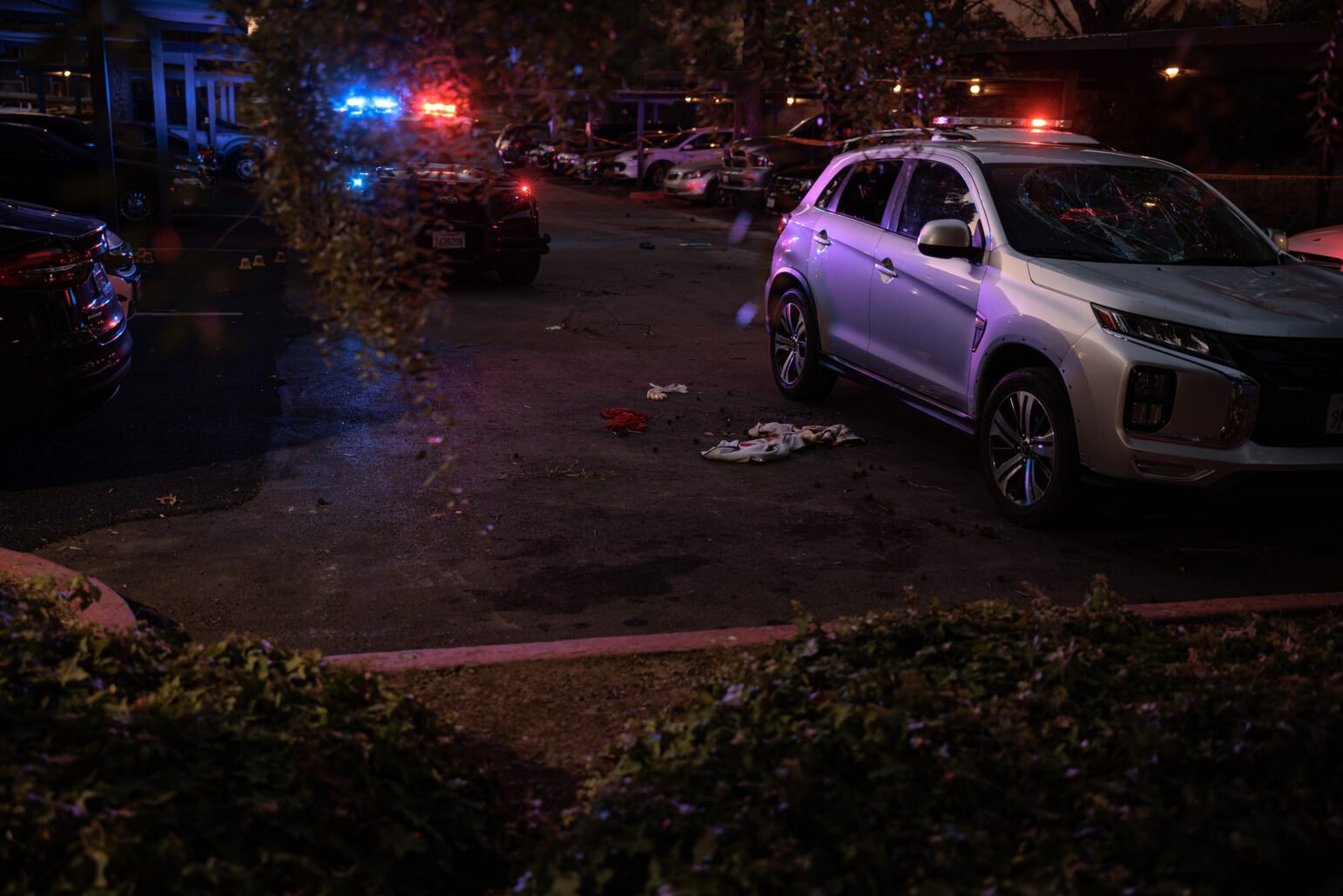
Officers Himanshu Saini and Daniel Saravia shot Schumann, 24, seconds after they contacted him in an East Vallejo apartment complex, according to public records and court testimony. About 20 minutes earlier, a 911 caller informed Vallejo emergency dispatch that Schumann said he wanted police to shoot him, according to public records.
Footage played at the Sept. 11 community town hall shows Schumann approaching the officers as they arrive on scene. He points what appears to be a firearm at them before turning away and raising his hands above his head. It is at this point that Saini and Saravia fire the first of seven rounds at Schumann, striking him in the back, hip, and lower leg. Police later learned the object was a non-functioning pellet gun wrapped in black tape.
Balbuena and Hybels commented on the footage the next day, in response to a news article about the community town hall. Balbuena concluded that the officers’ conduct was “within the use of force policy” and described Schumann’s alleged actions as a “targeted attack.” Hybels praised the officers’ marksmanship and wrote that they had “no choice” but to shoot Schumann. The incident remains the subject of ongoing administrative and criminal investigations.
‘Vacations and dogs’
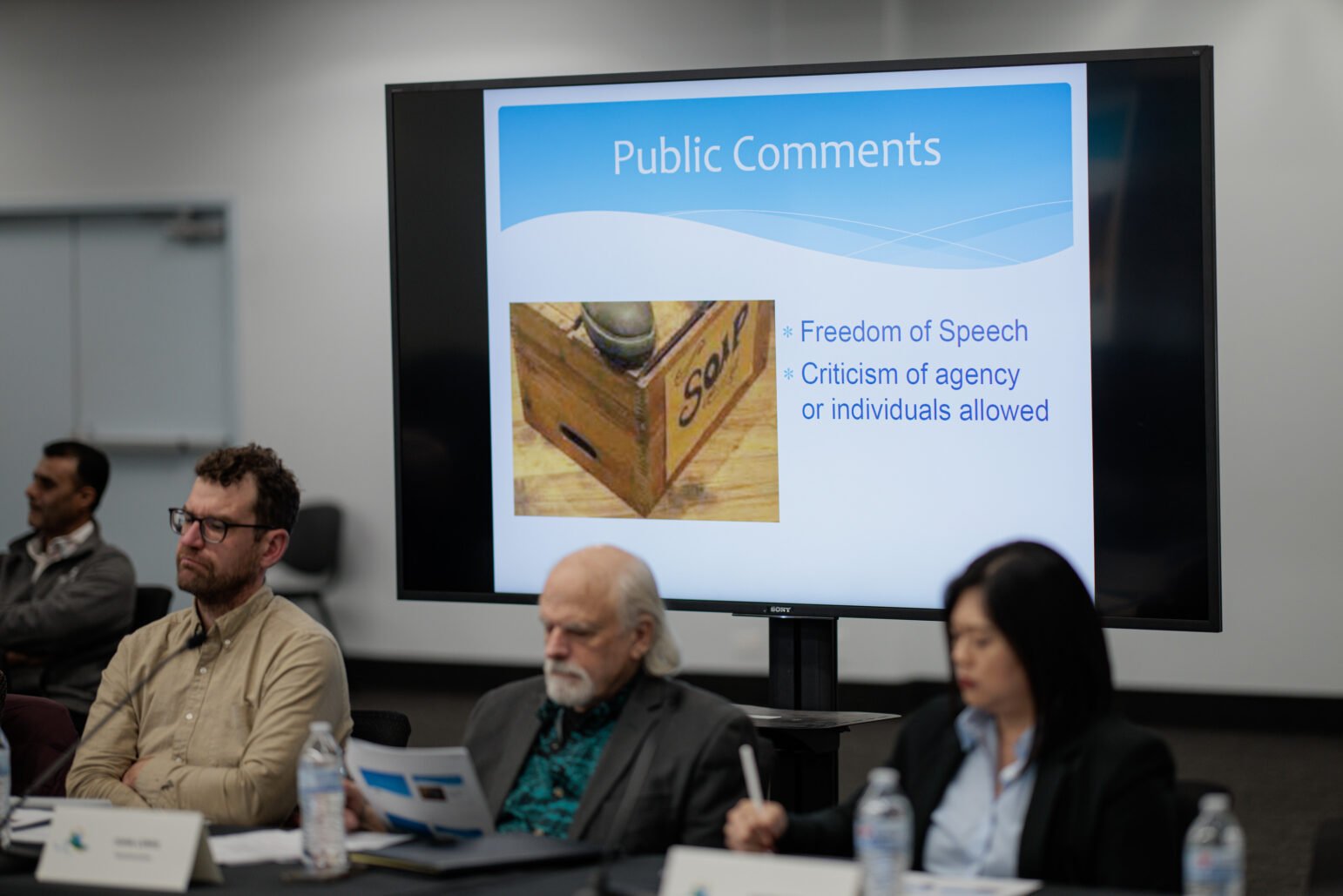
Balbuena declined multiple requests for comment prior to Open Vallejo’s Sept. 29 article about his and Hybels’ online posts. On Sept. 24, Balbuena posted an “Open letter to the public” in which he stood by his remarks and characterized his posts as an attempt to correct unspecified “misleading comments” in the press. Balbuena, a government official, then alleged that this newsroom’s coverage “looks to stifle my First Amendment rights.”
Only the government and its officials can violate the First Amendment. Balbuena then blocked Open Vallejo reporters, and later Open Vallejo itself, from viewing his personal Facebook account.
The U.S. Supreme Court ruled last year that officials who block members of the public from personal social media accounts can be held liable for violating the First Amendment when they block critics while speaking on behalf of the government. A member of the city’s Planning Commission, Balbuena has long used his personal Facebook account to comment publicly on both police and planning issues, often in local discussion groups such as Vallejo City Politics and Eyes on Vallejo. Although he also maintains a separate Facebook page associated with his role on the Planning Commission, it has been largely dormant since October 2024.
In 2020, Open Vallejo and the Electronic Frontier Foundation sent a legal demand to the city of Vallejo over allegations that officials engaged in “a practice of deleting comments and blocking users from social media pages based on the users’ viewpoints.” At the time, Vallejo faced an estimated $50 million in civil rights liability and had recently been forced from its municipal insurance pool of 31 years due to “large and disproportionate” legal settlements relative to other cities in the pool. The demand letter prompted the city to develop a new social media policy.
On Oct. 2, 2025, Open Vallejo’s attorney Matthew Cate sent a new demand letter alleging that the blocking of Open Vallejo and its reporters “constitutes unlawful viewpoint discrimination” under the First Amendment and deprives the public of “access to important public information regarding Planning Commission business and the business of the Critical Incident Review Board.”
That same day, Assistant City Attorney Katelyn Knight told Cate that she believed Balbeuna had resigned from the Planning Commission as well as the CIRB. Cate requested confirmation, which went unanswered for several days until Knight confirmed minutes before an Oct. 6 Planning Commission meeting that Balbuena was, in fact, still a member of the commission. Knight represented that “whoever was blocked on the private account has been unblocked.” Balbuena’s posts, however, were still not accessible to Open Vallejo reporters, and the following day, this newsroom discovered that he had also blocked Open Vallejo’s Facebook page.
Balbuena has used his personal Facebook profile to comment on planning-related issues on multiple occasions since his appointment to the commission last year, Open Vallejo research shows. The posts remain inaccessible to constituents and journalists he has blocked.
According to Balbuena, the Vallejo City Attorney’s Office told him that moving forward, he should use his planning commissioner page to discuss city business. Balbuena said he then “removed” approximately 100 people from his personal Facebook profile, which he said would now focus on “vacations and dogs.”
Since his resignation, it appears that Balbuena has also deleted multiple posts relating to his public role on the CIRB, including the Sept. 24 statement, as well as some in the Schumann shooting discussion thread that led to his resignation.
In addition to creating potential First Amendment issues, public officials’ private communications may be subject to the California Public Records Act if they pertain to the public’s business, according to First Amendment Coalition Legal Director David Loy. Open Vallejo filed public records requests on Oct. 7 for copies of Balbuena’s posts relating to the Schumann shooting. Under the law, the city has 10 days to respond.

